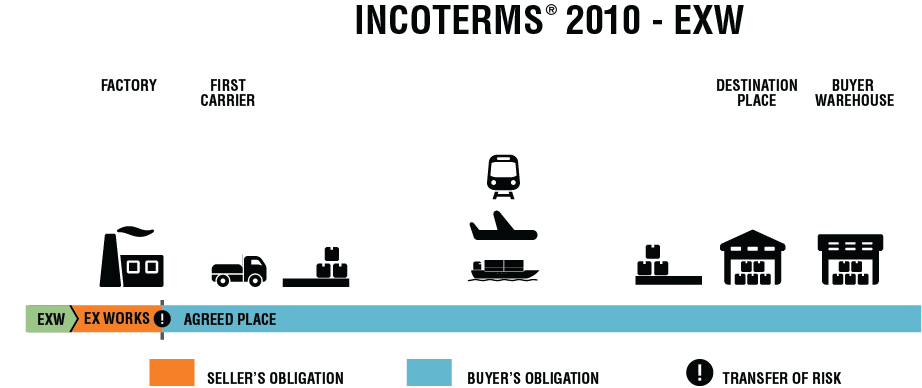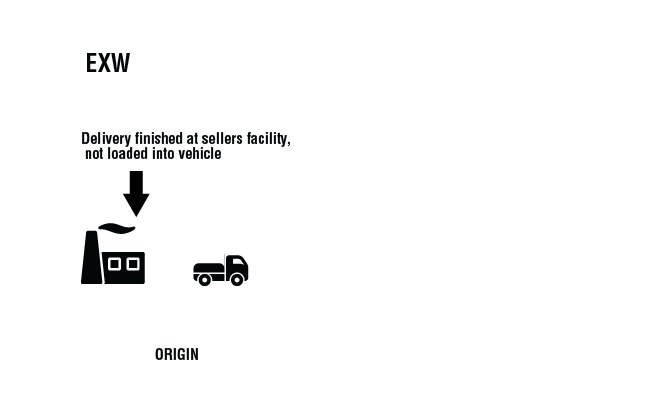| THE SELLER’S OBLIGATIONS |
THE BUYER’S OBLIGATIONS |
| 1. Provision of goods
The seller must deliver the goods, provide commercial invoice or an equivalent electronic document, provide evidence of conformity or proof of delivery |
1. Payment of the price
The buyer must pay the price of goods as agreed in the contract of sale |
| 2. Licences, authorisations and formalities
The seller must provide export licenses or local authorisations for exporting goods |
2. Licences, authorisations and formalities
The buyer must get any export license and import permit for the export of goods |
| 3. Contracts of carriage and insurance
Contract of carriage: no obligation Contract of insurance: no obligation |
3. Contracts of carriage and insurance
Contract of carriage: no obligation Contract of insurance: no obligation |
| 4. Delivery
The seller must place the goods at the named place of delivery. The seller has no obligation to load the goods on any collecting vehicle. The seller must deliver the goods within the period and time agreed.It is good practice to name the location, otherwise the seller can select the best point available |
4. Taking delivery
The buyer must take delivery of the goods when they are delivered.In some cases, it is common practice to agreed having the shipper to load goods into the collecting vehicle at buyers expense and risk |
| 5. Transfer of risks
The seller is responsible until goods are in place as in the agreed time |
5. Transfer of risk
The buyer bear risk and loss or damaged goods from the time goods are in place until the expiry date |
| 6. Division of costs
The seller pays all cost until goods are in place for pick up |
6. Division of costs
The buyer must pay transportation and additional cost from goods delivery which includes customs formalities at origin |
| 7. Notice to the buyer
The seller must inform the buyer when goods will be ready to pick up |
7. Notice to the seller
Assuming that seller has informed the buyer about goods ready to be picked up. The buyer must collect goods within the agreed time |
| 8. Proof of delivery, transport document or equivalent electronic message
No obligation |
8. Proof of delivery, transport document or equivalent electronic message
The buyer must provide the seller with appropriate evidence of having taken delivery. |
| 9. Checking
The seller must bear the cost of checking, quality control, measuring, weighing, counting, packing of goods and marking. If special package is required, the buyer must inform and the seller and agreed on extra expenses |
9. Inspection of goods
The buyer must bear the cost of pre-shipment and exports inspection except when is mandatory by the government |
| 10. Other obligations
The seller must cooperate with all documentation for export and insurance |
10. Other obligations
The buyer must pay for all export documentation and insurance |
 Source: internationalcommercialterms.guru
Source: internationalcommercialterms.guru
